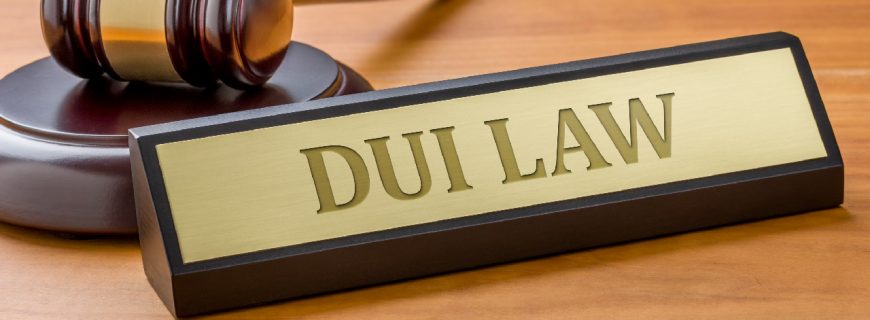
What Is the Best and Worst Case Scenario for My DUI?
When speaking of the criminal offense of operating a motor vehicle while under the influence of alcohol or drugs, the term “impaired driving” is used. You could face charges for driving while intoxicated or under the influence of drugs if your ability to operate a motor vehicle is even slightly compromised. Second, you may be charged with another crime under the Criminal Code if you are operating a motor vehicle while your blood alcohol level is equal to or higher than 80 milligrams of alcohol per 100 milliliters of blood. A good criminal defense lawyer can assist you with your DUI charges.
Worst Case
The worst case scenario is that you are found guilty of a DUI offense. Your car insurance rates would skyrocket, you’d have a criminal record, you’d be banned from driving for at least a year, and you’d have to pay to have an ignition interlock installed in your car. For first-time offenders, there would also be a mandatory minimum fine and victim fine surcharge.
A DUI conviction carries serious penalties. A required minimum fine of $1,000 will be imposed for first-time DUI convictions. Depending on the blood alcohol content, a first-time “80 or over BAC” conviction carries a required minimum fine of $1,000, $1,500, or $2,000, respectively. You will receive a sentence of at least 30 days in jail if you are found guilty of a second DUI and the Crown files a Notice of Application for Increased Penalty. A third DUI conviction entails a minimum 120-day sentence in prison. The repercussions of a conviction can also cause serious collateral damage, such as loss of employment.
If you are facing a DUI conviction in court, the issue probably started long before you showed up. It’s crucial to use your right to silence if you are stopped and accused of driving while intoxicated or over the limit. Cooperate with the officers in terms of identifying yourself and providing them with your vehicle ownership, driver’s license, and insurance. You shouldn’t, however, provide any further details. If an officer suspects you of having consumed alcohol or drugs while driving, assume that you will be arrested, and refrain from providing any information that might be used against you later on. Be respectful but silent. Anything you say or do could be used as evidence against you in court.
Although retaining legal counsel does not guarantee that your DUI charges will be dropped, having a skilled defender on your side might lessen the consequences during the negotiating and trial phases. If you hire a skilled and knowledgeable impaired driving trial attorney, a surprising percentage of DUI charges can be won.
Best Case
The best-case scenario you may hope for if you were stopped for allegedly driving while intoxicated is that the officer(s) didn’t collect enough evidence against you or made procedural, technological, or legal errors prior to, during, or after your arrest. These kinds of mistakes frequently result in the Crown dropping your charges or downgrading them to a lesser offense under the Highway Traffic Act.
You must comply with any requests from the police to provide a roadside breath sample or submit to a battery of three standard field sobriety tests. You are only required to identify yourself and present your license, among other things, but you are not required to respond to any of their queries. Following a police officer’s instructions and keeping as quiet as possible during the roadside interaction is a safe practice.
If the police request that you provide two breath samples into an Intoxilyzer at the police station, you must follow them there and submit the samples, which must be taken roughly 17 minutes apart. Additionally, you must respect your right to silence while being transported to and from the police station in the police vehicle as well as when you are being held there. In other words, remain silent at all times and avoid giving any answers. Just keep quiet. You will be charged with refusal to provide a breath sample, which has the same criminal penalties as an impaired driving charge if you refuse to provide a breath sample for an approved screening device or an Intoxilzyer.
If you hire a DUI attorney, they might be able to highlight to the Crown any substantive, technical, procedural, or Charter defenses, leading the Crown to either offer a careless driving plea or drop the charges. In addition, if you enter a guilty plea, the Crown might agree to drop some of the counts you are facing. To get the Crown to agree to drop the charges or downgrade them to a lower Highway Traffic Act offense is the aim of a lawyer’s plea negotiations with the Crown. Alternately, the objective is to soften the punishment as much as possible, which includes reducing the fine or jail time, as applicable, and the length of the driving prohibition to the absolute minimum, but still allowing the accused to apply to drive with an ignition interlock.
Get in Touch with the Best Criminal Defense Lawyer
It is a sure bet that speaking with a criminal defense lawyer can assist you to navigate through the course of your encounter with the judicial system if you are facing charges of driving while intoxicated and want to come out on the best possible footing rather than the worst. Get in touch with Singh Law 4 U if you’re looking for the best criminal defense lawyer.